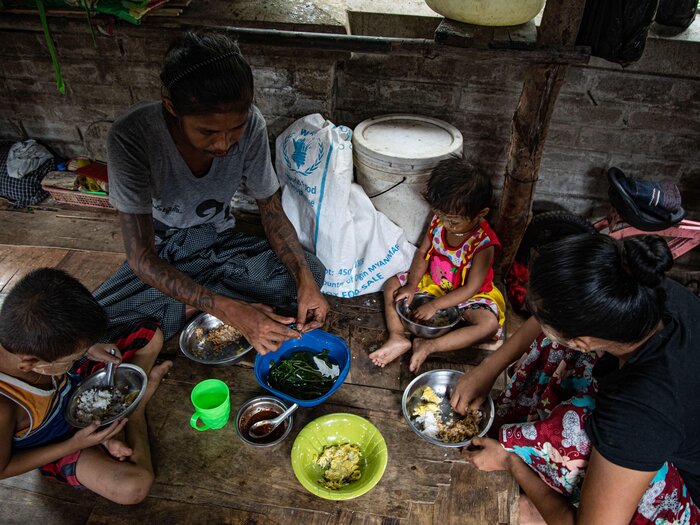Mawlamyine, 5 August
Families are struggling to make ends meet due to increased commodity prices and an imbalance between earnings and expenses under the military regime, according to housewives and office staff.
Rice and basic food prices have been continuously soaring for more than two and a half years since the military coup, owing to mismanagement and harsh restrictions imposed by the military council.
Paw Hsan Hmwe, which was priced at around 30,000 kyats a bag before the coup, has now risen to around 100,000 kyats, while cooking oil prices have climbed by fourfold, from more than 2,000 kyats to about 8,000 kyats per viss.
In addition, the price of chicken and duck eggs, which are only around 100 kyats, has risen to nearly 400 kyats, and the price of water spinach, which were only about 50 kyats a bunch before, has become around 300 kyats.
A housewife claimed, “We live in a rented house. My husband works as a taxi driver and does not have a regular income. We can’t make ends meet on one’s income”.

Prices of items soared by more than 10% to 15% after the military council introduced the new 20,000-kyat notes.
Despite rising prices, the Minimum Wage Law, which needs to be revised every two years, has not been amended, and workers still earn only 4,800 kyats per day.
People are currently dealing with the problem of increasing food prices and a lack of job opportunities as a result of the military coup.
A businessman told Than Lwin Times, “Because the prices of raw materials are high, we cannot raise the salaries of our employees”.
On July 27, the military council formed the Union Steering Committee to ensure commodity
price stability, particularly basic food prices, and for the convenience of the people.
However, until now, commodity prices have not decreased, and the prices of meat and vegetables continue to rise, making it harder for people to survive, and they are on the brink of starvation.
In the last week of June, the World Bank said that Myanmar’s dwindling economy had not yet recovered, and that wrong policies would adversely impact the country’s economy.
News-Than Lwin Times
Photo-CJ

